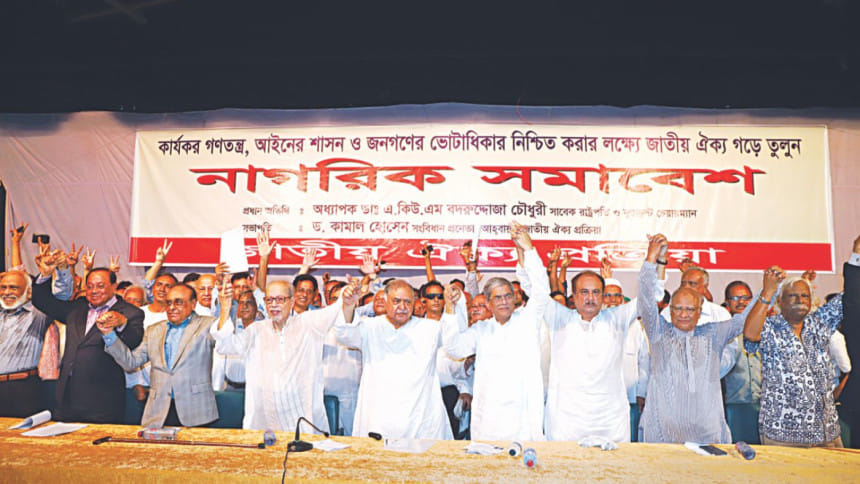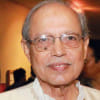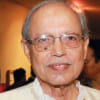Jamaat a bar to 'greater national unity'

BNP's longstanding ties with Bangladesh Jamaat-e-Islami has emerged as an obstacle to its move to forge a greater unity with other political parties, aimed at realising its demands ahead of the national election, likely in December.
Bikalpadhara Bangladesh (BDB), a potential partner in the unity process, has already made it clear that BNP must cut its ties with the Islamist party before the BDB build any sort of unity with the BNP.
The BDB, led by former president Prof AQM Badruddoza Chowdhury who is a former BNP leader, has also asked other parties not to share the stage with BNP if it does not sever its relations with Jamaat, which opposed the country's independence from Pakistan in 1971.
An alliance of eight left political parties is also against any unity process if Jamaat is directly or indirectly involved.
The issue also came up at a 20-party alliance meeting at BNP Chairperson Khaleda Zia's Gulshan office last night.
In response, Jamaat leader Abdul Halim said they wanted the unity to happen at any cost and that the BNP could make any decision to make that happen.
“If we are an obstacle, keep us aside from the unity process. But we want unity at any cost,” a source quoted the Jamaat leader as telling the meeting.
At the meeting, alliance members requested BNP Secretary General Mirza Fakhrul Islam Alamgir to complete the unity process at the soonest.
But Fakhrul did not make any comment at the meeting participated by members from all the alliance partners, according to two sources who spoke on condition of anonymity.
The BNP-led four-party alliance was formed in 1999 where Jamaat was a key partner. Jamaat is with the BNP since then. Jamaat was also in the 2001-2006 government led by the BNP. In 2012, the four-party alliance was expanded to a 20-party alliance.
At a programme at Mahanagar Natyamancha on Saturday, Gonoforum President Dr Kamal Hossain and BDB President Badruddoza Chowdhury announced that they would work together to have the greater unity with other political parties.
Several top leaders of the BNP and its allies (other than Jamaat) also shared the stage along with representatives of some small parties and civil society members.
But in a joint meeting of Juktafront and Jatiya Okiya Prokriya (national unity process) of Dr Kamal on Tuesday, the BDB made its position clear that there cannot be any direct or indirect alliance with any anti-liberation party or individual.
Led by the BDB, Juktafront is a four-party alliance, which was formed late last year. Other members of this alliance are Bangladesh Krishak Sramik Janata League, Jatiya Samajtantrik Dal (JSD) of ASM Abdur Rob and Nagorik Oikya of Mahmudur Rahman Manna, who quit the Awami League in 2009 as its organising secretary.
Talking to The Daily Star, BDB Joint Secretary General Mahi B Chowdhury, who is Badruddoza Chowdhury's son, said they wanted to join force with BNP, but for that to happen the party had to leave the Jamaat.
Communist Party of Bangladesh (CPB) President Mujahidul Islam Selim gave a similar view.
However, Dr Kamal, who quit the AL in the 1980s and formed Gonoforum in 1992, and the other partners in the Juktafront said they had no problem to be in the unity process with the BNP.
“We are now trying to forge a greater unity and Jamaat will not be a barrier to the unity process. The important issue now is the greater unity among the people and also the political parties. This is why we are focusing on it,” Dr Kamal, also convener of Jatiya Oikyo Prokriya, told The Daily Star.
Manna, convener of Nagorik Oikyo, echoed this view. “Jamaat is not a big deal at all for our unity process.”
Asked, BNP leaders said Jamaat was not a registered political party. So Jamaat does not exist as a party and therefore it cannot contest elections under its banner. As a result, Jamaat is not an issue here.
The 20-party combine is a separate alliance and that the greater unity process, whose objectives are totally different, should be seen as such, they added.
“Our focus is to forge a greater unity and we are working to achieve that goal,” Fakhrul told The Daily Star earlier in the day.
Referring to the demands of other political parties for polls under a nonpartisan interim government, Fakhrul said the left leaning political alliance and some other parties have been calling for a greater unity to restore democracy in the country.
“Even civil society members and other social organisations raised the same demands. So we are trying to form a greater unity with all the political parties and in this case Jamaat is not an issue,” Fakhrul added.
BNP leaders said they were keeping distance from Jamaat for the moment to make the greater unity a reality.
The party has been criticised at home and aboard for its relations with the Jamaat.
Asked, a Jamaat leader said, “We also want greater unity. We are in the 20-party alliance and we want to keep it intact. If the BNP wants to forge a separate alliance with other parties, they can do it and we welcome it.”
Against this backdrop, the BNP is expected to hold a rally in the capital tomorrow. Other leaders in the unity process said they would set their next course of action, including formation of a liaison committee for the unity process, after BNP's programme.
Keeping this in mind, the BNP has decided to hold the programme under its own banner, and not under the banner of the 20-party alliance.
At the rally, the party will place a seven-point demand for the government to meet before the election.
Dr Kamal floated his Jatiya Oikya Prokria on August 2016, about a year after the formation of Juktafront.
Earlier in July this year, eight left leaning political parties formed an alliance styled “Left Democratic Alliance”.
They all demand polls under a nonpartisan government, dissolution of parliament before the election schedule is announced and deployment of army during the election, among other things.
Initially, the Awami League, and also party chief and prime minister Sheikh Hasina welcomed the unity process.
However, the ruling party started to come down hard on the leaders of the unity process in recent weeks after they shared stage with the BNP and spoke of forging a “greater national unity” against the AL.

 For all latest news, follow The Daily Star's Google News channel.
For all latest news, follow The Daily Star's Google News channel. 








Comments